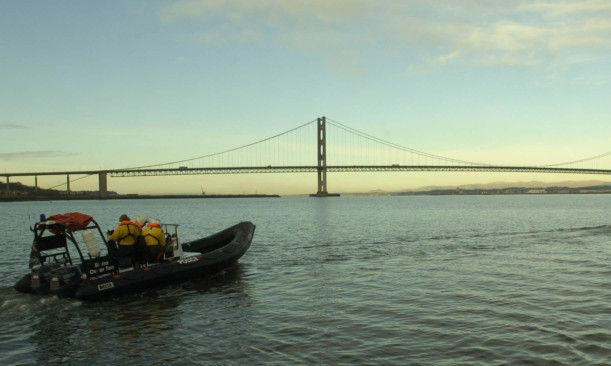Divers are continuing to risk death by “electro fishing” in the Firth of Forth, it has emerged.
The livelihoods of legitimate local fishermen are also said to be under threat due to the illegal and highly dangerous practice involving passing an electric current into the seabed.
Boats have been using the technique, banned by the EU since 1998, to gather tonnes of razor clams worth thousands for the black market.
Celebrity chefs cooking the delicacy on TV are said to be responsible for the clams’ rise in popularity, and it is thought most of the Fife catch is transported to London to sell to restaurants.
It has become an increasing problem in the Forth over the last three years, with boats moored at Methil fishing in Largo Bay and off Kirkcaldy, Kinghorn and Burntisland.
The police and local MSPs have received a high number of complaints from fishermen concerned about risk to life through electrocution and the effect electro fishing has on the marine ecosystem.
However, while Marine Scotland is monitoring the situation, only one person in Scotland has been reported to the procurator fiscal in the past year and just four fixed penalty notices were issued.
Ian Laing, a Fife-based wildlife crime police officer, has received numerous complaints but said the police were not authorised to act.
“It is an illegal pursuit which Marine Scotland deal with by way of fixed penalty tickets,” he said.
Mr Laing said the boats involved have heavy duty generators on the back which produce electric currents to stun the clams into emerging from the seabed. They are then loaded into sacks and hoisted into the boats to land and sell.
Kirkcaldy MSP David Torrance has also been approached by fisherman concerned about the practice and said he had passed the complaints on to the relevant authorities.
“It’s extremely dangerous and it’s also illegal,” he said.
“It’s affecting people’s livelihoods because it kills everything else off and I hope the authorities recognise this and do something about it.”
Claire Baker, MSP for Mid Scotland and Fife, said it was not enough to simply define electric razor clam fishing as illegal.
“We must ensure that robust enforcement measures are in place that will deal with any illegal fishing in our waters,” she said,
“We know the dangers that illegal electric razor clam fishing can present in Fife and, with only four fixed penalty notices being issued in the past year, there is a worry that the majority of illegal fishing with electricity is going undetected.
“I appreciate that it is a difficult crime to detect but we must be vigilant. This illegal activity is not only dangerous but also undercuts the activities of local law- abiding fishermen.
“There are also real concerns that electric razor clam fishing can be harmful to the wider marine environment and it is a practice which has been banned at an EU level since 1998.”
A Scottish Government spokesman said Marine Scotland worked with the police on enforcement, including joint patrols in fast inshore craft.
“We also share intelligence with not only police colleagues but also with the Foods Standards Agency and local authority environmental health, who have an interest in the classification of waters in which any illegal harvesting takes place,” he said.
“The proceeds from the electro fishing are currently being directed into the black economy due to the illicit nature of the activity and honest, law-abiding fishermen are precluded from participating.
“There are conflicting views about the damage the method causes to other sea-life, such as young lobsters, and our own desk study proved inconclusive.
“We are therefore supporting an industry/science partnership study to examine the effects of fishing for razor clams using electricity. The outcome of this study will inform future policy.”
